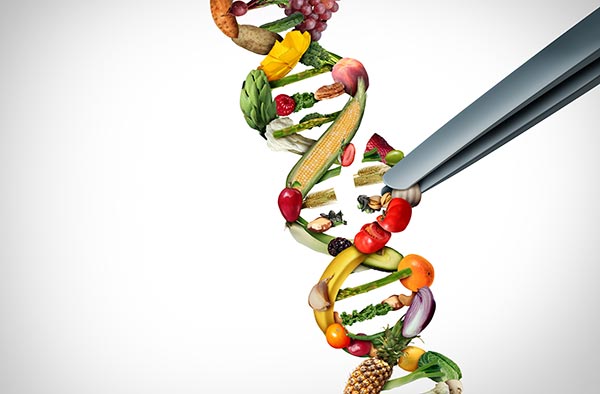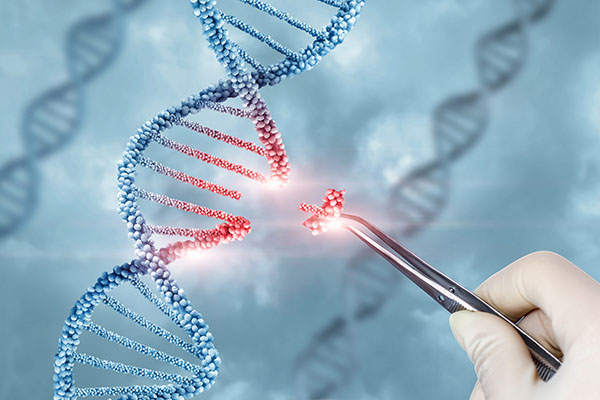 Parler
Parler Gab
Gab
- Generative AI has successfully designed synthetic DNA sequences that control gene expression in healthy mammalian cells for the first time.
- The technology allows scientists to turn genes on or off in specific cell types, paving the way for highly targeted gene therapies.
- Researchers used AI to create entirely new DNA "enhancers" that do not exist in nature, offering a new way to fine-tune gene activity.
- The breakthrough could lead to safer, more effective treatments by reducing unintended side effects in healthy cells.
- The study, published in Cell, marks a major milestone in generative biology, expanding beyond protein design into gene regulation.
AI as the new architect of genetic control
For the first time, scientists have harnessed artificial intelligence to design synthetic DNA sequences capable of precisely controlling gene expression in healthy mammalian cells. Published in the journal Cell, the groundbreaking study from the Centre for Genomic Regulation (CRG) in Barcelona demonstrates how AI can craft custom DNA "enhancers"—tiny genetic switches that turn genes on or off—with unprecedented accuracy. This breakthrough could revolutionize gene therapy, allowing researchers to fine-tune treatments to avoid harmful side effects while correcting faulty gene activity. Gene expression—the process by which DNA instructions are converted into functional proteins—is regulated by enhancers, short DNA sequences that act like molecular switches. Until now, scientists have relied on naturally occurring enhancers, limiting their ability to create highly specific genetic interventions. But AI has changed the game. Using a machine learning model trained on massive datasets, researchers instructed the AI to design synthetic enhancers that activate a fluorescent protein gene in certain mouse blood cells while leaving others unaffected. The AI-generated sequences were chemically synthesized, inserted into cells, and performed exactly as predicted—a feat previously thought to be years away. "It's like writing software but for biology, giving us new ways of giving instructions to a cell and guiding how they develop and behave with unprecedented accuracy," said Dr. Robert Frömel, lead author of the study.A new era of precision medicine
The implications for medicine are profound. Many diseases, from cancer to autoimmune disorders, stem from faulty gene regulation in specific cell types. Current treatments often affect healthy cells, leading to severe side effects. AI-designed enhancers could allow therapies to target only malfunctioning cells, minimizing collateral damage. For example, a patient with a genetic blood disorder might receive a therapy that activates a corrective gene in red blood cells while leaving platelets untouched. This level of precision was previously unattainable. "We set out to decipher these grammar rules for enhancers so that we can create entirely new words and sentences," explained Dr. Lars Velten, the study’s corresponding author. "Now, we can design genetic switches that nature never invented."The dark side of genetic engineering: Who controls the code?
While the potential for healing is immense, the power to rewrite genetic instructions raises ethical and safety concerns. If AI can design DNA sequences that override natural gene regulation, what prevents this technology from being weaponized or misused? What if human imperfections serve a purpose in our lives? What if the architects decide upon master characteristics, and attempt to cleanse the human race of undesirable traits to create a "perfect" race of people? History offers cautionary tales. The CRISPR gene-editing revolution, once hailed as a medical miracle, has faced backlash over unintended mutations and ethical dilemmas surrounding human germ-line editing. Similarly, AI-generated enhancers could be exploited for unethical purposes—such as engineering biological agents or manipulating human traits. The recent mRNA vaccine experiments wrought deadly consequences on humanity, re-instructing human cells to produce spike proteins that persisted and caused damage to the heart and other organs. The researchers acknowledge these risks but emphasize that their work is still in early stages. "We’re just scratching the surface," Velten said. "There are over 1,600 transcription factors in humans and mice. We’ve only begun to explore this landscape." As AI reshapes the boundaries of genetic engineering, society must confront a critical question: Will this technology be used to heal—or to control? The same tools that could cure disease might also enable unprecedented biological manipulation. The future of AI-designed DNA is here. The question is, who will wield it responsibly? What are the repercussions of manipulating DNA this way and will there be irreversible issues that result? Sources include: ScienceDaily.com Cell.com CRG.euUnlocking the potential of herbal COX-2 inhibitors for modern ailments
By Belle Carter // Share
How air pollution rewires young brains – and how parents can minimize the damage
By Cassie B. // Share










